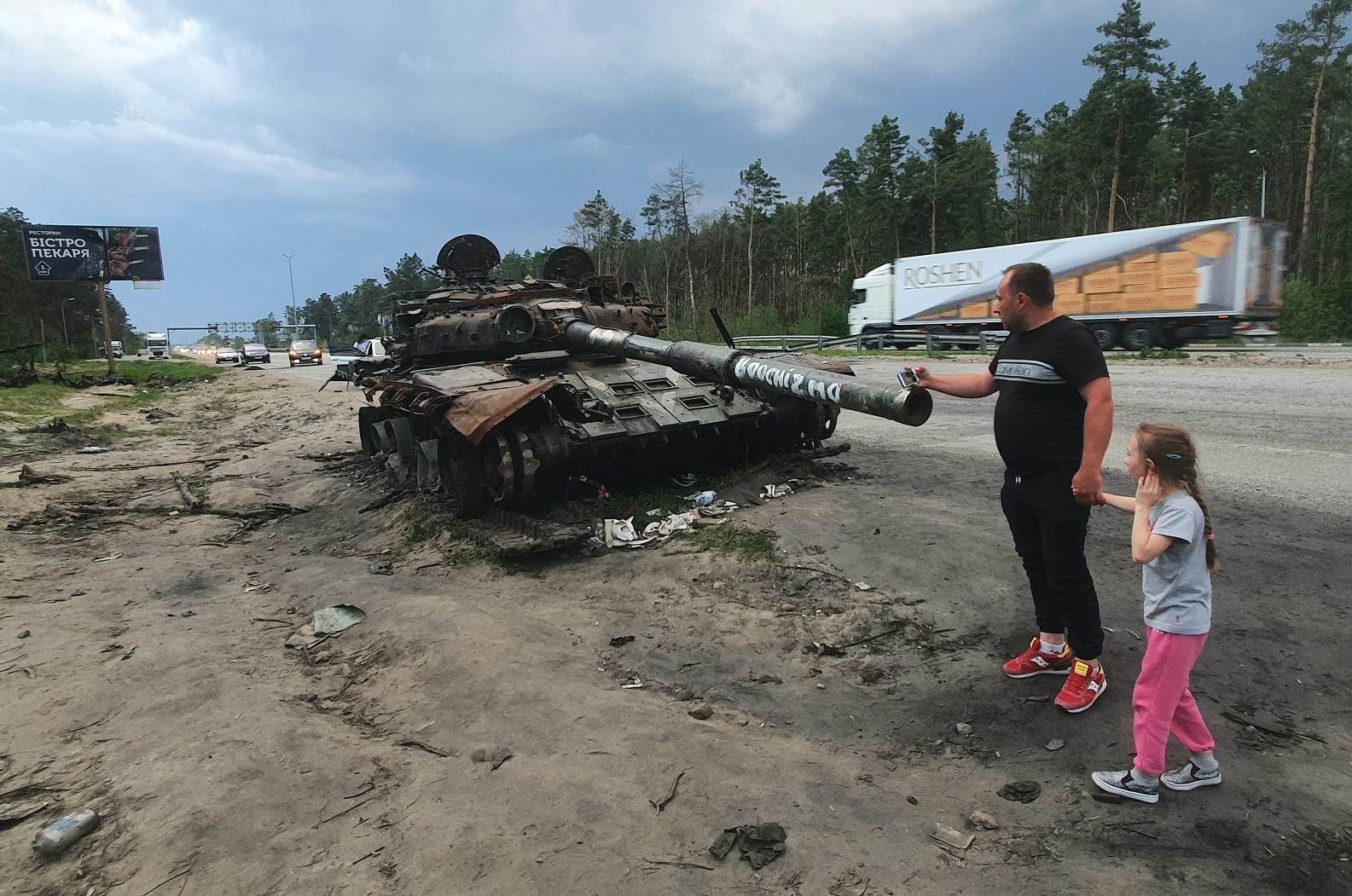John J. Mearsheimer and Jeffrey D. Sachs misinform about Ukraine
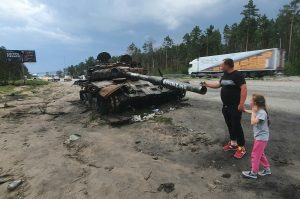
John J. Mearsheimer is the R. Wendell Harrison Distinguished Service Professor of Political Science at the University of Chicago. He is known for his controversial opinions, but Americans rarely see him on TV. Recently, he gave a lengthy interview at CGTN, the international division of the official TV network in China. Xu Qinduo at CGTN introduced Professor Mearsheimer as “almost the lone voice” blaming the United States and NATO for the war in Ukraine.
Jeffrey D. Sachs is a world-renowned economics professor. He serves as the Director of the Center for Sustainable Development at Columbia University in New York. Not long ago, to those holding the opinion that “Putin thinks he’s Peter the Great” and that “he launched a war for no other reason than an imperial expansion,” he responded: “That is a lie,” affirming that, along with Professor Mearsheimer, he holds NATO responsible for the Russian invasion of Ukraine.
Both professors are wrong.
Without Ukraine, Russia cannot rebuild its imperial power
Ukraine is a potentially rich and powerful land at a strategically important crossroads. With fertile soil, it is one of the largest worldwide food producers. Plenty of mineral resources made Ukraine a crucial industrial hub in the European part of the former Soviet Union. No wonder Russia wants it back. Most of all, because if it is not a part of Russia, Ukraine has everything needed to become a regional economic power counterbalancing Russian influence.
Ukraine did not have elites prepared to run a modern state when gaining independence in 1991. Chaos endured. Many doubted that it could survive as an independent country separated from Russia. With Putin gaining power in Russia, the weakening of Ukraine became the Russian objective.
The new state gradually shaped its identity and worked toward economic stability. Foreign observers might disagree about the players behind the Orange Revolution in 2004 and the Maidan Revolution in 2014. Ukrainians see it clearly as an ongoing struggle to free themselves from the shadow of the Soviet Union. Observers in the West point to corruption in Ukraine; Ukrainians see Russia as the main corruptor.
But time is on the side of Ukraine. With every passing minute, more Ukrainians, regardless of whether they speak Ukrainian or Russian at home, see a better future in an independent Ukraine than in close ties with Russia.
Both professors did not notice that. Putin did. He knew the longer he waited, the fewer chances Russia could ever control Ukraine again.
In 2005, Putin declared that “the demise of the Soviet Union was the greatest geopolitical catastrophe of the century,” and “for the Russian people, it became a genuine tragedy.” When a nation’s leader tells that to his people, it means that he intends to amend the situation.
Just before the war, on December 12, 2021, Putin renewed his bemoaning that the fall of the Soviet Union “was a disintegration of historical Russia.” “What had been built up over 1,000 years was largely lost,” he mourned. From the mouth of a macho man in power, it is not the sobbing of a wimp on the sofa in the shrink’s office; it is a promise to revise it. So he did on February 24, 2022.
Both professors ignored, as well, the article by Vladimir Putin published (available in English) on July 12, 2021, on the official Kremlin website: “On the Historical Unity of Russians and Ukrainians.” Referring to the extensive historical background, he claims that “true sovereignty of Ukraine is possible only in partnership with Russia” because “Russians and Ukrainians were one people – a single whole.” Ukrainians did not run en masse to kiss Putin’s ring, so on February 24, 2022, he unveiled his understanding of the unity between Russians and Ukrainians and his concept of the partnership.
Professors Mearsheimer and Sachs do not see the above facts and the interpretation of them as relevant. They insist on talking about NATO.
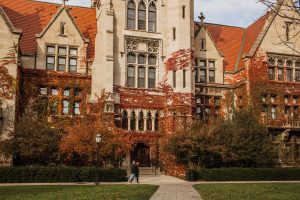
What is the sphere of influence?
Most Westerners do not know that the “sphere of influence” means different things to them than to most Russians.
For Americans, the sphere of influence equals free trade. The media usually expose instances when big businesses get unfair benefits through bribes or interference in local politics when dealing with weaker partners. These abuses are fewer in democratic societies, with a free press and respect for individual rights. Promoting democracy and freedom is a crucial objective of American foreign policy. As a result, we have a coherent legal structure advantageous to everyone. As with everything run by people, it never will be perfect.
Russian tradition is rooted in the 240 years of Mongol rule from 1237 until 1480. It was a ruthless extortion of debilitating tributes and the merciless killing of opponents. After freeing itself, Russia did not know any other form of government. Western ideas of freedom and equality never took root in Russia. For Russians, the sphere of influence means the right to extort tributes from vassals. I observed that growing up in Poland when it was in the Soviet sphere of influence. I cite examples in my earlier article.
Russia’s supporters argue that the criminal actions of some players in the Western system justify seeing it as no better than the Russian approach. They do not get the difference between the moral system in the West, abused by lawbreakers, unfortunately, not always caught and punished, and the Russian way, which is immoral and illegal in its very concept.
Most Westerners do not know about that difference, but both professors should know it well. When Professor Sachs complains that with NATO’s expansion, “Russia is unable to project any power” in the region, he advocates granting Russia the right to extort tributes from its neighbors.
It is not about NATO; it is about money
It is intriguing that in justifying Putin’s special operation, Jeffrey Sachs, recognized as one of the best economists in the world, never refers to the economy in Ukraine. In America, the economy defines politics. It is the same everywhere else. Both professors speak about Ukraine as if they do not get it yet.
At the time of the Soviet Union’s collapse, the GDP per capita in Ukraine was roughly the same as in Poland. In 2020, it was about one-quarter of that in Poland. Are Ukrainians lazy or less skilled? With their economy struggling, many of them found work in Poland. They are in high demand there as being considered clever and reliable. Why cannot they do the same in Ukraine?
One does not need to be a professor at a prestigious American university to figure out what our two actual distinguished professors pretend they do not know. It is NATO’s Article 5. In the case of Poland and other former Soviet Bloc nations, it means protection from undue Russian meddling. Businesses worldwide see that as guaranteeing political stability, encouraging investment, and long-term contracts. It is a big reason behind the prosperity of Poland and other post-Soviet nations.
Ukrainians want the same. They do not care what we would call it; they do not want to be in the Russian sphere of influence. Denying Ukrainians that right is the crux of the arguments by both professors.
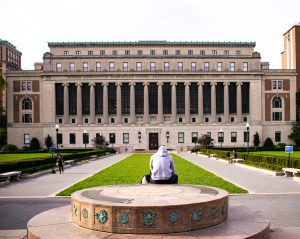
The truth about NATO’s expansion
Both professors argue that American militarists pushed for NATO expansion, resulting in understandable concerns in Moscow, leading to the invasion. For them, it is about the power struggle between the United States and Russia. In their wisdom, several European countries that joined NATO after the fall of the Soviet Union should have had no say. At least, they did not mention any role these nations might play in regional politics. It is about 100 million people in the center of Europe, with a combined GDP roughly the same as Russia’s. For both professors, the interests of those nations, as well as of Ukraine, are not worth any consideration.
Jeffrey Sachs correctly recalls that with the disbanding of the Soviet Union, the existence of NATO was in question. But the nations freshly freed from the Soviet domination had no illusion that Russia would refrain from its earlier practices, but rather, feared retaliation might happen. So they insisted that free trade with the West could be genuine only if they got guarantees that Russia would never be able to extend its sphere of influence over them again. In the existing political reality, it was NATO’s Article 5. The first few post-Soviet nations joined NATO five years before joining the European Union, not in the reverse order. In 2013, Ukraine tried associating with the European Union without protection by NATO’s Article 5. Putin succeeded in blocking that in 2014.
In the 1990s, the former Soviet Bloc nations would likely form an alternative military alliance if NATO firmly rejected their admission. NATO would lose its purpose and might dissolve. The new pact would become a guarantor of peace in Europe. Eventually, Western European nations and the United States would join it. We would end up with NATO version 2. That was the reality. But two prominent American professors could not see that because, for them, world politics is only about the United States, Russia, and China.
Professor Sachs insists that at the time of the Soviet Union’s disintegration, Western politicians promised Russian leaders that NATO would not expand. It was not their call. They did not represent about 100 million people in several European nations. They sold to Russians what they did not have. I can sell Professor Sachs the Brooklyn Bridge and deposit the receipt in the George Washington University archives. That would be as good as the documents deposited there, assuring Russia that NATO would not expand.
A nice bulwark to have
Professor Sachs claims that the war can end tomorrow if “President Biden picks up the phone and says, President Putin, NATO will not expand to Ukraine.” Russia did not invade the United States, and President Biden is not the president of Ukraine. Professor Sachs repeats that it does not matter what Ukrainians want. They do not want to be in the Russian sphere of influence. President Biden cannot deliver that to them. They fight for that with Russia. Americans must decide if it is in their best interest to allow Russia to take control of Ukraine or if it is to prevent, now and forever, Russia from being able to conquer any other territory by force.
According to Professor Mearsheimer, “The only way out of this war and the only way to create any semblance of stability in Europe is for Ukraine to become a neutral state, for Ukraine to give up its aspirations to become part of the West, to give up on its aspirations to become a Western bulwark on Russia’s borders.”
At least he is realistic in the value of his suggestion; it would offer a semblance of stability. In dictionary terms, it is an unreal appearance of getting what we want. The heinous Munich Agreement of 1938 comes to mind; it gave Europe an illusion of peace for less than a year. It was a disgrace to Western politicians and did not protect us from WWII. I wrote about that, too.
Suggesting Ukraine’s neutrality is equally misleading. Ukraine is neutral. The issue is with its independence; Russia questions that. Professor Mearsheimer pretends he did not notice that yet.
The bulwark reference confirms that, for the political scientist, Ukraine is nothingness. The numbers say otherwise. Since 1990, the Polish GDP has grown tenfold. If Ukraine had joined NATO and the European Union at the same time as Poland did, it would have had a shot at growing as fast as Poland did. As a result, today, Ukraine’s GDP could have been about half of Russia’s. A nice bulwark to have.
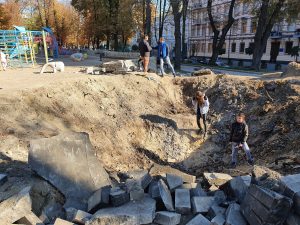
The truth and the lies
At the time of this writing, the International Criminal Court in The Hague issued an arrest warrant against Vladimir Putin for his war crimes. Better than nothing, but it is too little too late.
Hours after the invasion of Ukraine, I suggested that the International Court of Justice should charge Putin with the crime of starting an unjust war. The charge should arise from the Kellogg-Briand Pact from 1928, also called the Pact of Paris. Most nations, including the Soviet Union, signed it, agreeing that solutions to all disputes or conflicts shall be sought by pacific means. That act was behind the legality of the Nuremberg Trials. We can use the same protocol to prosecute Putin and his enablers.
The world can live in peace only if we put in front of judges every war criminal, regardless of how powerful. If we agree with the reasoning of professors Mearsheimer and Sachs, we accept that all our international institutions and agreements are meaningless and that the thugs with the toughest fist should rule. It is not a way to prosper in Ukraine or anywhere else in the world.
The peace requires informing Russians that none of the countries around Russia aspire to take any of its territories or interfere in its internal affairs. All their neighbors want the same from Russia. Instead of doing that, both professors misinform Americans about NATO.
For peace to last, we need a military arrangement backing it up. NATO’s Article 5 seems to work fine for many nations so far. If anyone has a better idea, neither professor mentioned it.
Russia’s imperial aspirations are the biggest enemy of the Russians. Germans and Japanese gave up their expansionist ambitions in 1945 and built their prosperity afterward. Today Russians have a choice: Will they do the same now, or after WWIII? Both professors do not see that.

 Many tell us what to think. I ask my readers to be skeptical. Question me and others.
Many tell us what to think. I ask my readers to be skeptical. Question me and others. 
